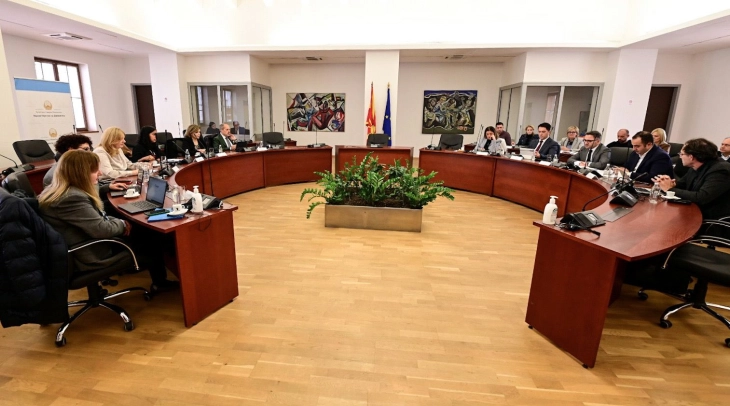Draft-Human Capital Development Strategy developed in cooperation with World Bank

Skopje, 17 November 2022 (MIA) – A draft version of the Human Capital Development Strategy has been created in cooperation with the World Bank. The goal of the Strategy is to provide better living conditions for citizens, encourage accelerated, inclusive and sustainable economic growth and reduce poverty through investment in three key areas – education, health and social protection, said the Ministry of Finance on Thursday.
The method of creating a stronger and more resilient human capital through joint projects in these areas was the topic of discussion at the meeting Finance Minister Fatmir Besimi, Ministers of Education, Health, Labour and Social Policy, the World Bank’s Human Development Director for Europe and Central Asia Fadia Saadah and the World Bank Country Manager Massimiliano Paolucci.
“Human capital is the most important factor to the growth and development of a country. This is why one of the priorities in our policies is increasing human capital investment in the three areas of education, health and social protection. Therefore, the budget funds allocated for these areas have been growing from year to year,” said Besimi.
According to him, these are investments which do not show results in the short term, but benefit the future generations and the future growth and development of the country.
The Finance Minister emphasized that despite the energy and economic crises, the Government remains committed to implementing the reforms.
The World Bank representatives pointed out the numerous advantages of investing in human capital.
“This contributes to the well-being of the people of North Macedonia and is a basis for equal opportunities. At the same time, it provides a more equitable distribution of the benefits of development, and finally, enables a connection between various types of investments, making use of the advantages of the complementarity between the human and physical capital,” said regional director Fadia Saadah.
She added that these advantages, however great, do not materialize automatically and that commitment is especially important.
It was noted at the meeting that the quality of human capital in the country has improved in the 2010-2020 period, and the human capital index has risen from 0.54 to 0.56, however this does not mean that the reforms should come to an end.
The country receives crucial support in the implementation of this key reform through numerous World Bank projects. Additionally, support for further cooperation in the implementation of the program goals was expressed at the meeting, reads the press release. ad/ik/







